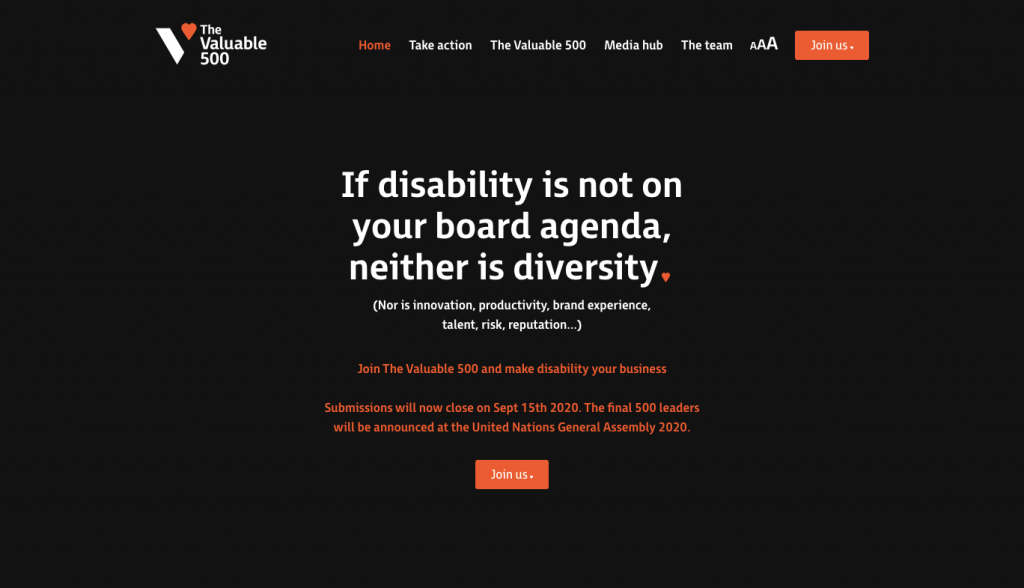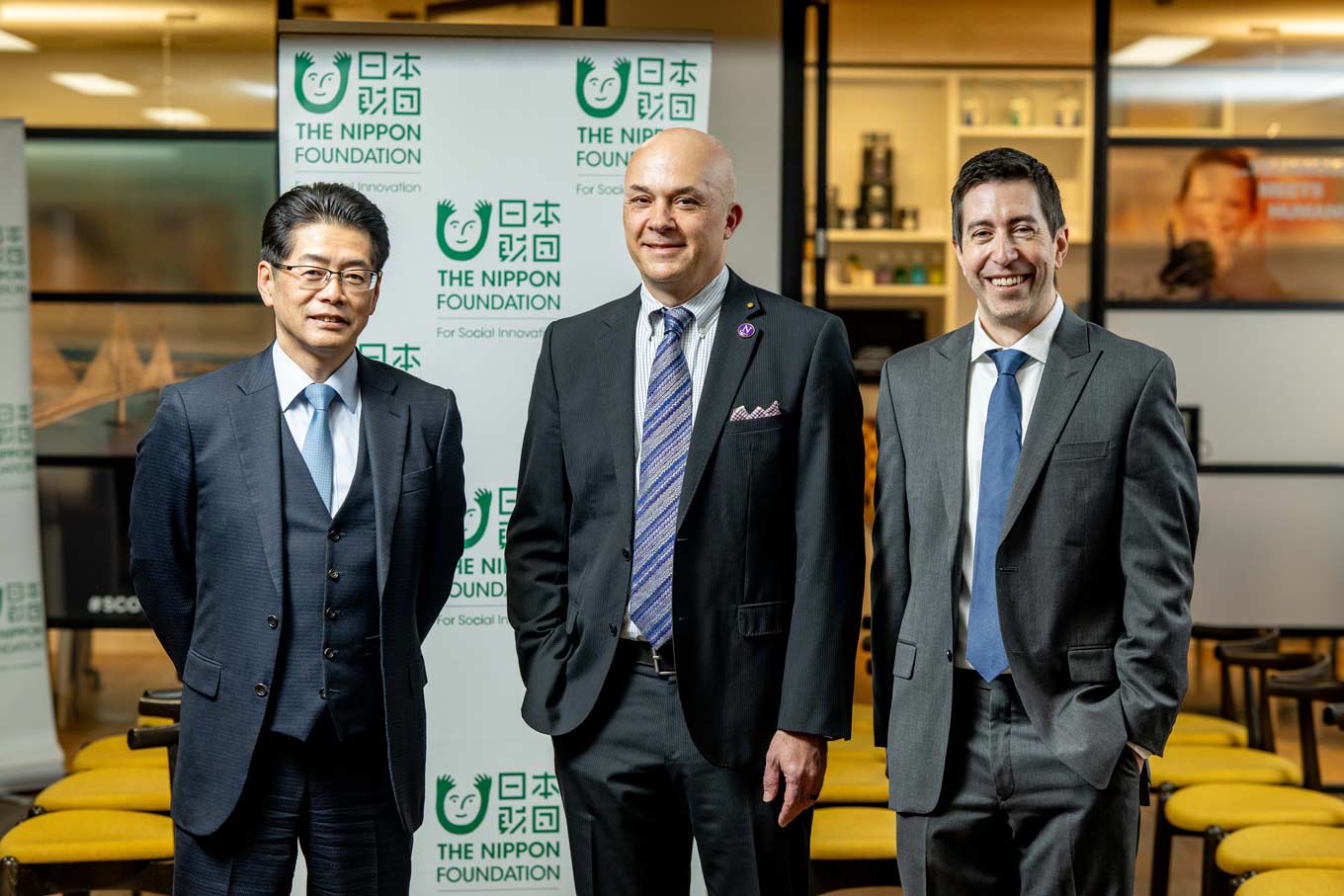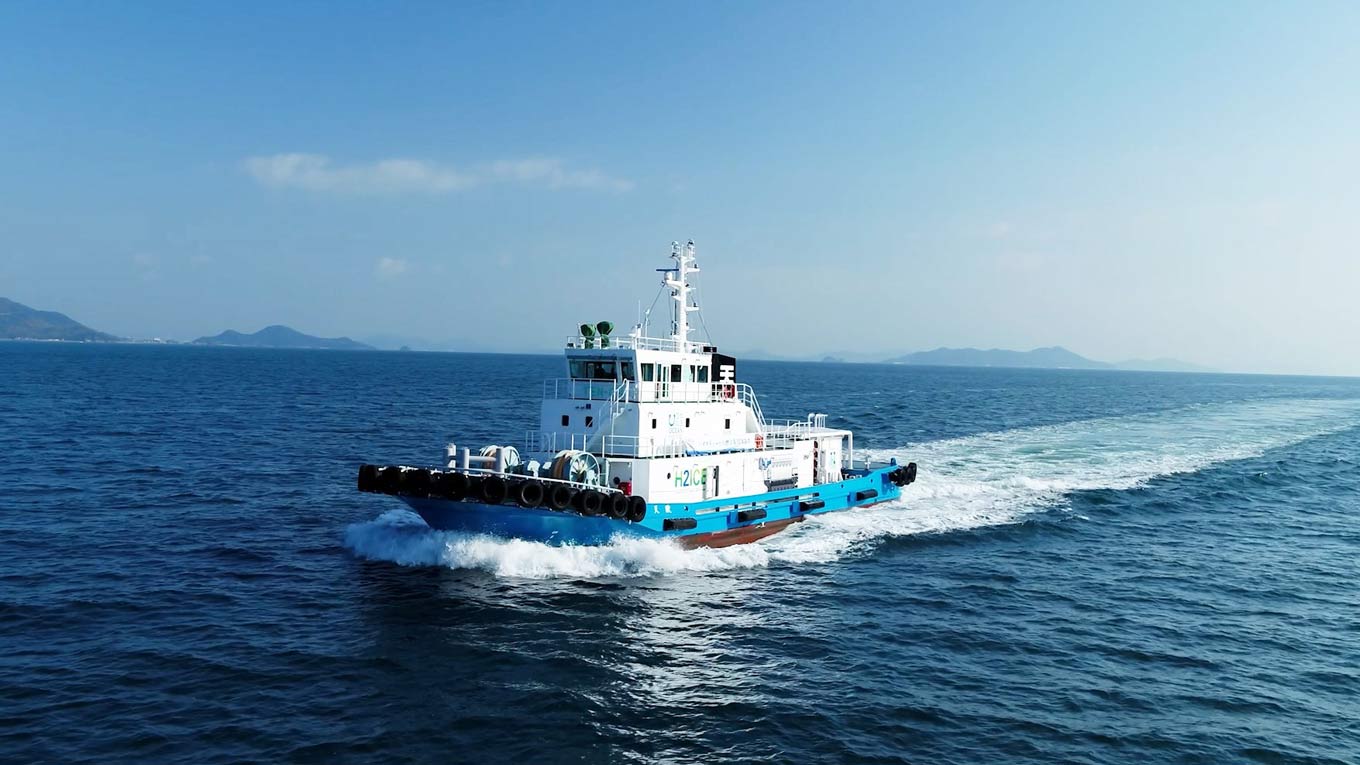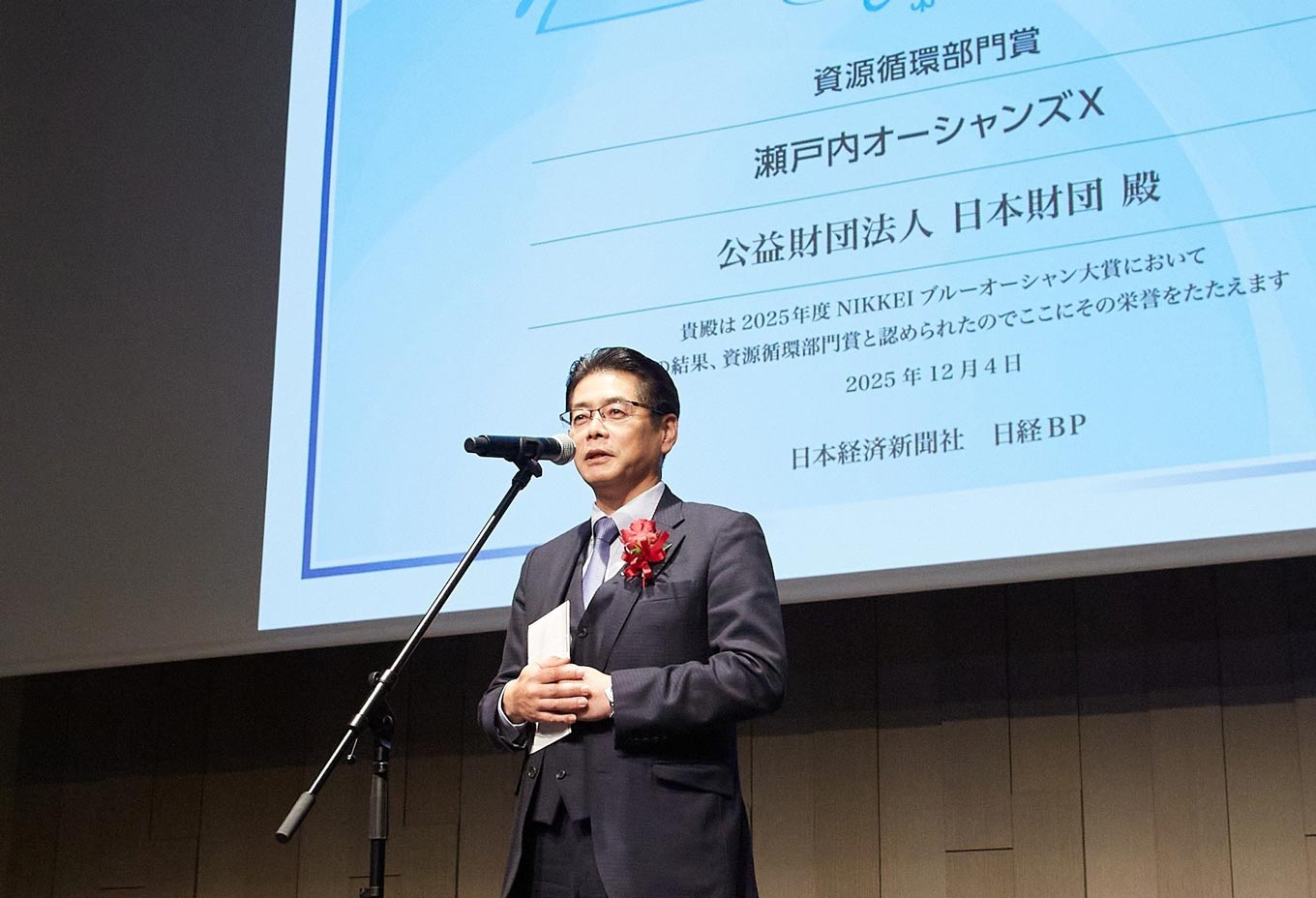Social Person – What Companies Need Today Is an Inclusive PerspectiveA conversation with social entrepreneur Caroline Casey
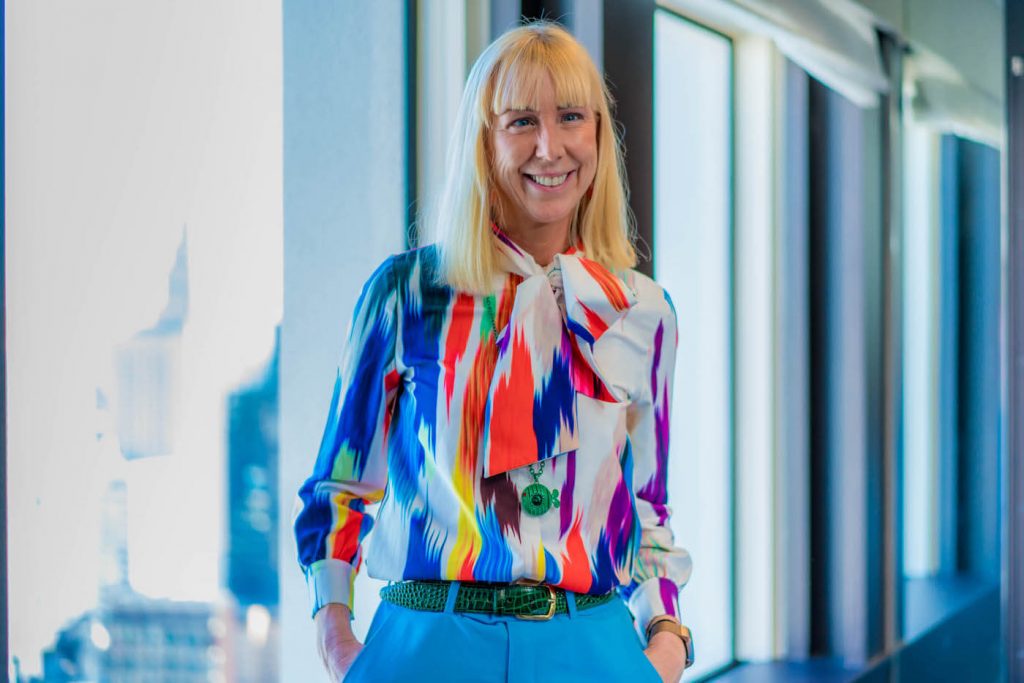
There is an elephant in the room
In the many business situations involving competition among companies, be they large are small, there are often at least one or two “elephants in the room” – issues that everyone realizes are present but no one will discuss. One particularly significant issue is the employment of persons with disabilities. A public seminar titled “Disability and Business” was held in Tokyo in February 2020 to show how inclusiveness can increase corporate value and to consider possibilities for persons with disabilities and businesses. The keynote presentation was given by social entrepreneur Caroline Casey, who is working to shed light on the importance of hiring persons with disabilities for the creation of an inclusive society, and calling on CEOs of major companies around the world to play a role. We asked her about the hidden potential for companies and society when persons with disabilities are able to participate actively.
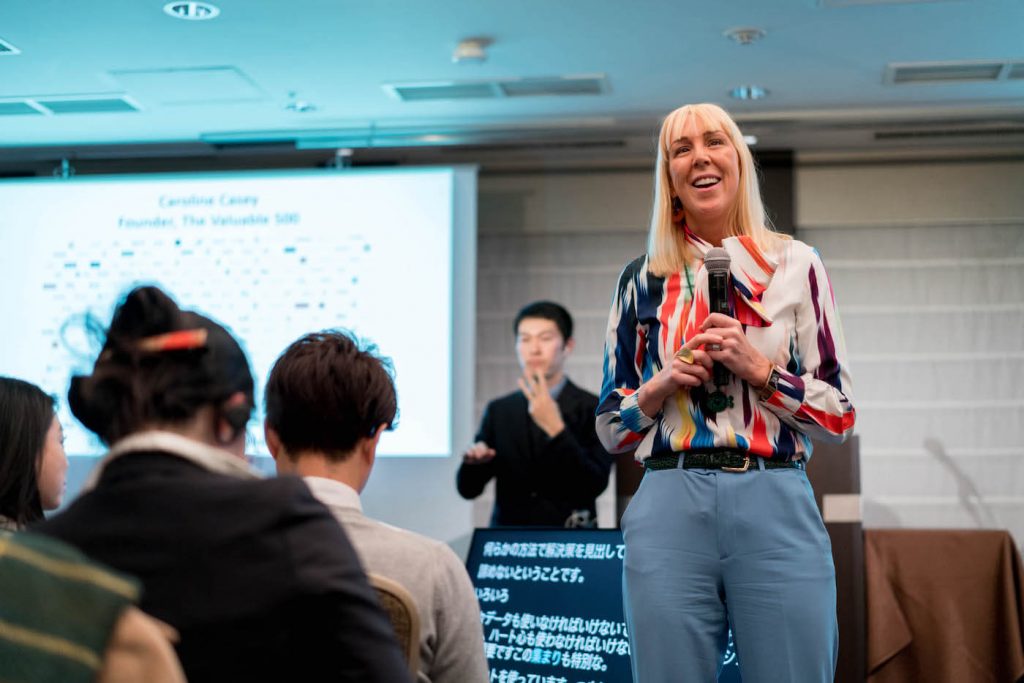
“Disabilities” are human society’s “elephants”
Ms. Casey was born with ocular albinism, but was not told of her condition until the age of 17. Until that time, her parents had raised her as they would any other child. They stressed the importance of believing in her own possibilities, and taught her the importance of living not as a “person with visual impairment,” but rather as “Caroline.” She went to business school and joined an international consulting firm, but by the time she was 28 her vision had weakened to the point that she could no longer hide her condition, and that experience became the starting point for her current work.
Ms. Casey explains that at first, she felt a sense of hopelessness, but her doctor told her to do whatever she really wanted to do. She thought very hard about that, and remembered that her childhood dream had been to become Mowgli from “The Jungle Book.” Another of her favorite books was “Travels on my Elephant,” so she contacted the book’s author, the conservationist Mark Shand, and with his introductions and assistance she began making plans to travel to India.
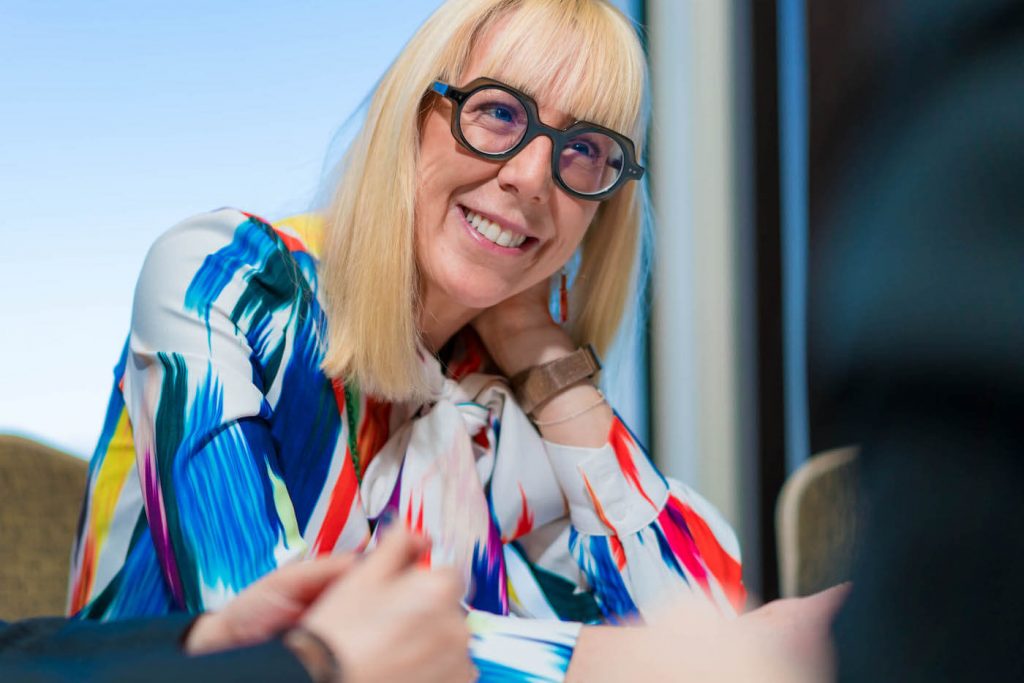
Following her heart, Ms. Casey went toIndia to become a mahout– a person who rides, trains, and cares for elephants. In India, she rode on anelephant named Kanchi (“little girl” in the local Malayalam language) forroughly 1,000 kilometers over four and a half months.
The trip gave her many chances toexperience beautiful natural surroundings that reminded her of her childhood. Comparedwith her time working as a consultant, she could be honest with herself and besatisfied with who she was. While traveling by elephant, she felt that she wasable to return to her true self. In that sense, Kanchi was a very importantteacher.
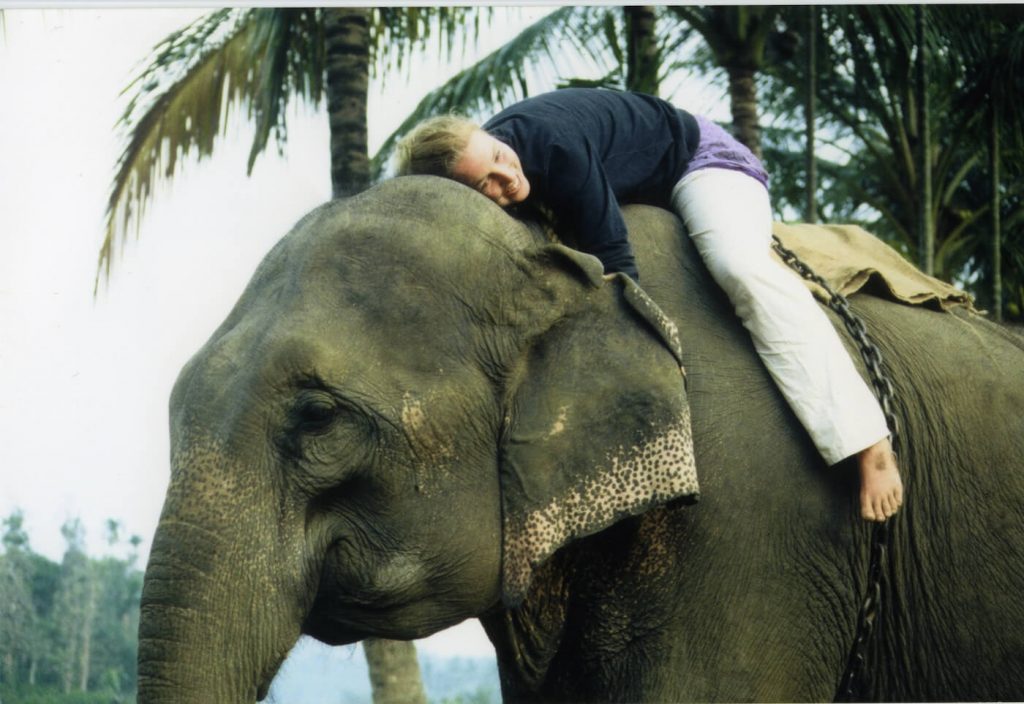
Today, Ms. Casey is founding CEO of Kanchi (Opens new window), an NGO based in Ireland that is working to reform social frameworks and recognition with regard to persons with disabilities. She speaks to groups around the world on the themes of “Disabilities exist in environments, not in people,” and “Businesses especially need to pay more attention to persons with disabilities.”
Ms. Casey notes that roughly 15% of theworld’s population has a disability, which equates to about 1 billion people.Furthermore, roughly half of the population has a friend, family member, orsomeone close to them who has a disability. Their purchasing power is estimatedat US$8 trillion, representing a sizeable potential market for both buyers andsellers. Nevertheless, businesses tend to neglect this segment in terms of bothproactive hiring and marketing activities.
According to Ms. Casey, a disability islike an “elephant” living in human society – a taboo term that people avoidtalking about. When discussing disabilities, there are a variety of randomclassifications, from physical to psychological and intellectual, from lesssevere to more severe, and whether or not the condition is congenital or theresult of an accident. In addition, corporate activities emphasize profits, butbusinesses do not know about the positive effects of hiring persons withdisabilities, so most managers do not make the effort.
Disabilities are all around us. Many peoplehave psychological or physical disabilities as a result of an accident orillness. It is said that one in four families in Europe includes a person witha disability. Many NGOs and other organizations are working in various ways topromote social participation by persons with disabilities, but understandingstill lags. What, then, can the rest of us do?
Ms. Casey says the important thing isinternational leadership by the business community. Businesses need to createaccurate data regarding persons with disabilities and the potential theypossess, understand that data, and then lead the way toward an inclusivesociety.
The Valuable 500 international initiative
Ms. Casey is the founder and creator of The Valuable 500, an unprecedented initiative to have the CEOs of 500 globally influential companies pledge to create workplace environments in which persons with disabilities can work freely. She notes that the project’s aim is to remove barriers to the hiring of persons with disabilities, and to take the most effective approach to achieving this.
The Valuable 500 was launched by Ms. Caseyat the 2019 World Economic Forum in Davos, Switzerland, in January 2019 at apress conference on “The Case for Disability Inclusion.” The initiative seeksto have business leaders themselves take the lead in transforming workplaces sothat persons with disabilities can make full use of their individual talents.Currently, roughly 240 companies from around the world are participating.
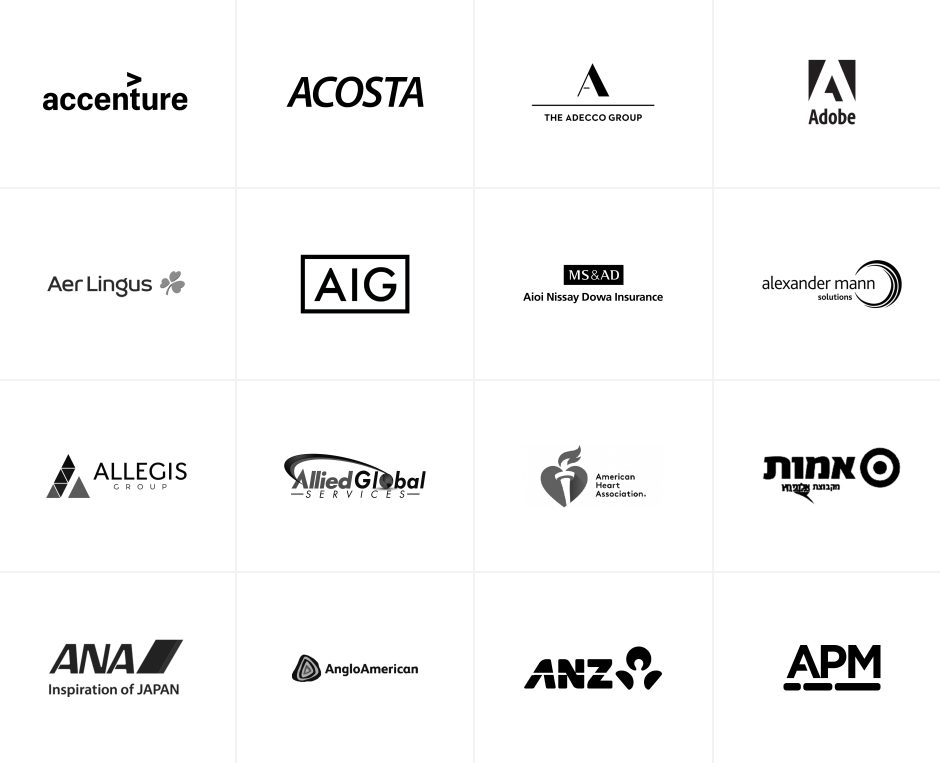
Ms. Casey notes that one of the reasonsCEOs have agreed to participate is that she does not take “no” for an answer.There are also cases where repeated persuasion, both intellectual andemotional, proves effective. Along with being business leaders, these peopleare also mothers and fathers, sisters and brothers, and they can be expected tounderstand what it would be like to have a member of their family not have theopportunity to work because of a disability. At the same time, the initiativeseeks to present hard data that clearly shows the major opportunities forbusinesses. In addition to corporate social responsibility (CSR) activities,there is much data that shows how hiring persons with disabilities contributesto a company’s brand and sales.
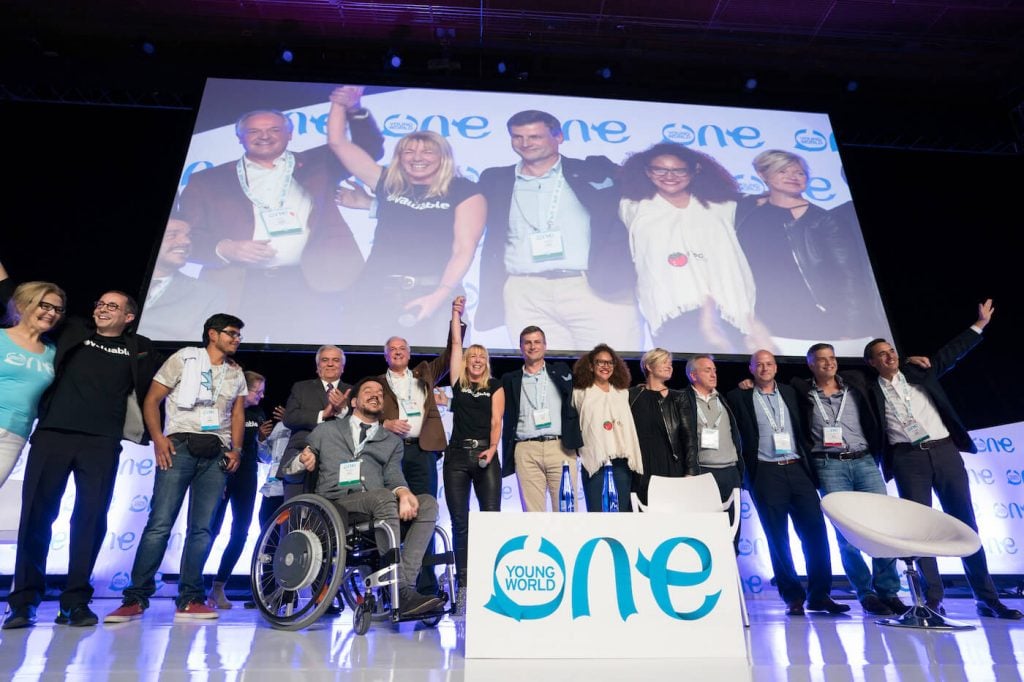
Ms. Casey adds that persons withdisabilities do not think negatively of their disabilities, but view them as apositive “difference.” They want to use their skills in society, and shebelieves this positive energy is bearing fruit. The reason for the name TheValuable 500 is that the project is designed to create value for society andcustomers.
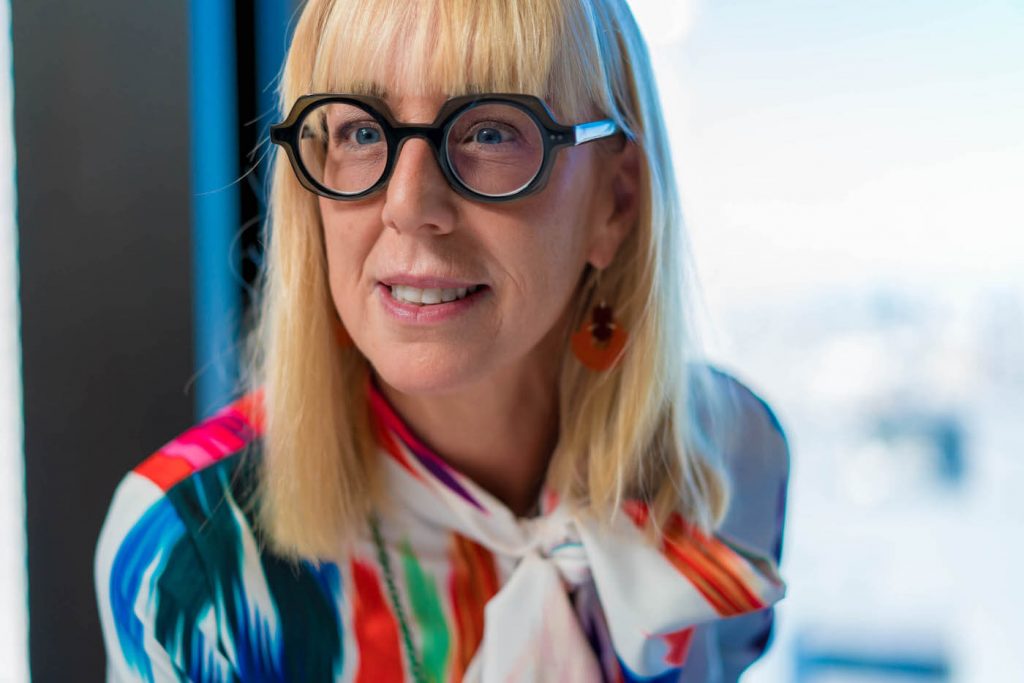
Ms. Casey describes “true inclusion” as peoplebelieving that they belong and can be themselves. Of course, there can bedifferences in ways of thinking and opinions, but labels like men and women,Japanese and Irish, and persons with disabilities and persons withoutdisabilities are not necessary. The important things are to have mutual respectand to provide space.
How should we address the “elephant” ofdisability? The key to achieving an inclusive society in which anyone canactively participate is for us as individuals, in addition to companies, tochange our way of thinking.
Photographs by Shiori Sato unless otherwise noted
Contact
Public Relations Team
The Nippon Foundation
- Email: cc@ps.nippon-foundation.or.jp
